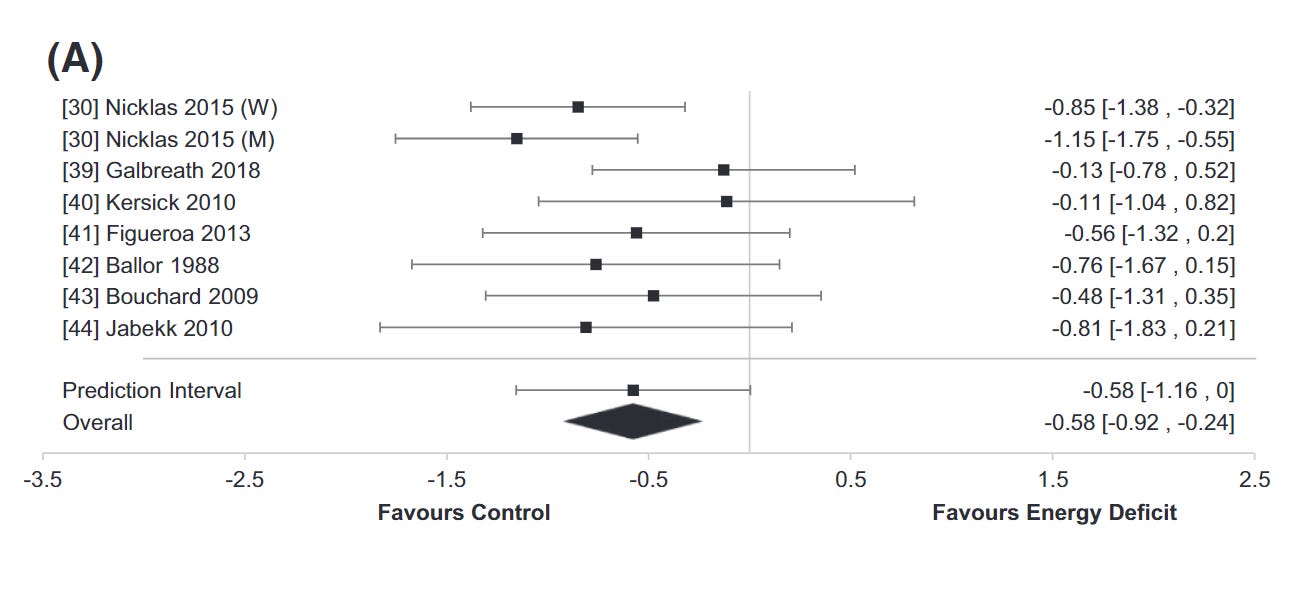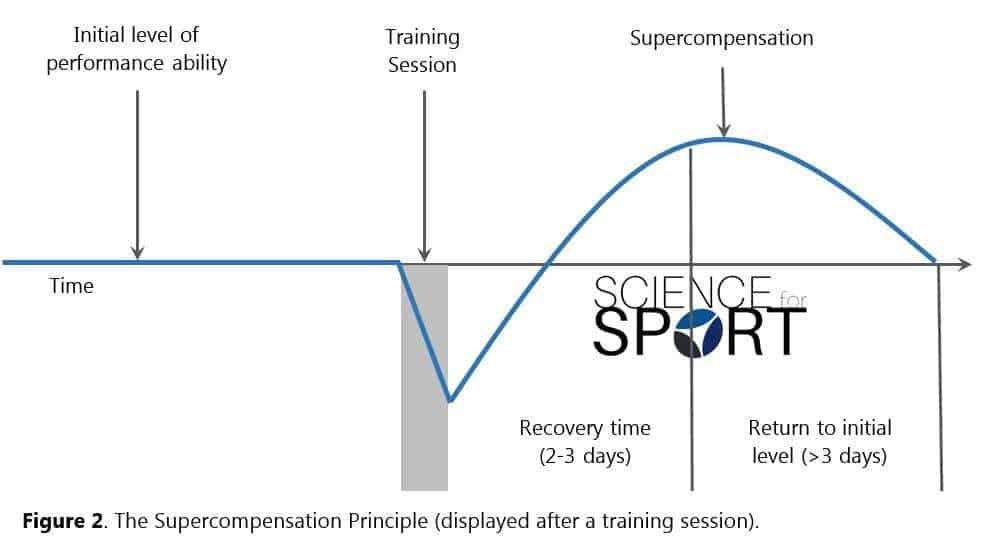How to Maximize Muscle Growth, Part 2: Nutrition
In this 2-part series, I will go over how to best use exercise (part 1) and nutrition (part 2) to maximize muscle growth.
Welcome to The Spotter!
I am Nolan Vannata. This newsletter is a part of my mission to make health, fitness, and nutrition content that is evidence-based, digestible, practical, and accessible.
Before you start reading, click here to read part 1 of this series. In part 1, I covered how to exercise to increase muscle mass, as well as a brief overview of health benefits of having muscle mass.
The relationship between exercise and nutrition for muscle growth
Both exercise and proper nutrition are necessary for muscle growth (as well as most forms of fitness gains). Think of exercise as the stimulus for muscle growth and nutrition as the energy and building blocks.
If you wanted to build a house, you start with instructions and blueprints. Then, you need energy (manual labor, power tools, machines) and materials (wood, cement, nails, etc.). Exercise can be viewed as the “instructions” and nutrition can be viewed as the “energy and materials”.
Nutrition for increasing muscle mass
Modifying your diet to increase muscle mass can be done in many ways. While there are likely hundreds (if not thousands) of things you can do to put on more muscle, nailing the basics will yield the best results.
Focus on these 3 areas:
Total energy intake (how many total calories to eat per day)
Protein quantity (how much protein you should eat per day)
Protein quality (which protein sources are optimal for muscle growth)
Total Energy Intake
Increases (or decreases) in muscle mass are influenced by the number of calories you consume. You can be in three possible states:
Energy deficit (weight loss)
Equal energy balance (weight maintenance)
Energy surplus (weight gain)
Losing fat and gaining muscle at the same time.
I don’t have the data, but I would guess that around 2 out of 3 people that I have coached have this on their list of goals.
Losing fat requires consuming less calories than you burn (which I previously wrote about), but this can conflict with the intention to build muscle mass. You would be simultaneously telling your body to increase the mass of one thing (muscle) while decreasing the mass of another (fat).
Losing fat while gaining muscle at the same time is incredibly difficult and likely impossible for most people.
You can see this in the figure below taken from the study, Energy deficiency impairs resistance training gains in lean mass but not strength: A meta-analysis and meta-regression.
The small black boxes in the chart above represent the results of each study in this meta-analysis. Studies with boxes to the left of the vertical line demonstrated that individuals in the control group (maintaining weight) gained more muscle than those who were in an energy deficit (losing weight).
As you can see, every study in this meta-analysis concluded that being in an energy deficit (losing weight) resulted in impaired gains in muscle mass compared to those who were not losing weight.
From an evolutionary/survival standpoint, this makes sense. If food was not in such abundance like it is today, it would be fatal for your body to increase muscle mass while you were starving.
We know that being in a calorie deficit is detrimental to muscle mass, but what about a calorie surplus?
Gaining fat and muscle at the same time
You may be familiar with the term, “bulking”. This strategy involves intentionally gaining fat mass with the hope that it will result in greater increases in muscle mass.
Usually (but not always), those who bulk hope to eventually lose the extra fat mass that they intentionally accumulated. This is a common strategy used in bodybuilding and combat sports, but there are many non-athletes who may use this strategy.
In the figure above, taken from Effects of Different Dietary Energy Intake Following Resistance Training on Muscle Mass and Body Fat in Bodybuilders: A Pilot Study, you can see that the group who put on more fat mass also put on more muscle mass.
However, the subjects of this study were bodybuilders. Experienced lifters looking to maximize 1 metric (in this case, muscle size) sometimes have to take extreme measures to see continuing improvement.
This is referred to as the law of progressive overload, which you can read more about here. The fitter you are in one area, the more you have to do to continue to see improvements.
As a non-bodybuilder (probably you), will you gain more muscle mass by bulking? Probably. Is it necessary? No. Most of the general population would not find bulking to be worth it because of the fat mass gain necessary to achieve greater muscle mass gains.
It is very reasonable to expect increases in muscle mass without bulking.
Protein Quantity
Protein intake plays a huge role in the growth and preservation of muscle. The article, Skeletal muscle and resistance exercise training; the role of protein synthesis in recovery and remodeling, beautifully explains the relationship between exercise and protein intake.
When resistance exercise is performed before protein ingestion, there is a synergistic combination of the two stimuli such that rates of muscle protein synthesis are stimulated over and above those of muscle protein breakdown. Thus, repeated bouts of resistance exercise when coupled with protein ingestion result in the accretion of skeletal muscle protein referred to as hypertrophy.
This quote describes how exercise temporarily damages our muscles (muscle protein breakdown), but the body’s response (muscle protein synthesis) to that damage is great enough to provide a supercompensation.
Here is a visual of supercompensation from Science for Sport:
This supercompensation graph shows 3 important steps:
A training stress, causing a temporary performance decrease.
A supercompensation, where you are at a new (and hopefully better) fitness level.
A return to baseline.
When it comes to growing your muscles, you need to eat enough protein to respond to the muscle damage to achieve supercompensation. Otherwise, you will only return to baseline or potentially even see a fitness decrease.
So, how much protein should you be eating to achieve supercompensation? Here is a chart from the Precision Nutrition Coaching textbook that should help.
I think that people should be consuming at least 1.2 grams/kg of bodyweight per day, but ideally you would consume more than that. Another way to look at this is to eat according to your ideal bodyweight since fat mass does not require a significant amount of protein.
I made the chart below so you can easily find your target protein numbers.
Example: If you are 90 kilograms/198 pounds and you want to eat 1.6g/kg per day, you would see on the chart that you should be eating 144 grams of protein per day.
Protein Quality
We’re really just talking about animal protein vs. plant-based protein here. The following table was taken from the meta-analysis, Animal Protein versus Plant Protein in Supporting Lean Mass and Muscle Strength: A Systematic Review and Meta-Analysis of Randomized Controlled Trials.
The results of the studies examined in this meta-analysis show that animal protein results in greater increases in lean mass and percent lean mass. In other words, animal protein enhances muscle growth more than plant protein.
However, there are 2 very important things to note:
Both plant protein and animal protein were effective in increasing lean mass with resistance training.
The differences are small (but still significant).
As someone who rarely eats meat, I wish the results were different. I still eat dairy products and eggs, but to make up for any potential losses in protein quality, I regularly consume whey protein, an animal-based protein powder.
Summary
Total energy intake
Total caloric intake is positively correlated with muscle mass gains, assuming the training and protein quantity/quality are the same.
It is extremely difficult, and likely impossible, to increase muscle mass while losing fat mass unless you are a complete beginner or taking steroids.
Intentionally gaining fat mass is beneficial for increasing muscle mass, but it is by no means necessary. Most people can see great results by increasing muscle mass while trying to keep fat mass constant.
Protein quantity
The amount of protein you should consume per day is dependent on your bodyweight, specifically your lean mass. If you have excess body fat, I recommend using your ideal bodyweight to calculate your specific protein needs.
For specifics, refer back to the charts above.
Protein quality
Animal protein is more beneficial for increasing muscle mass/lean mass than plant protein. However, plant protein is still beneficial for increasing muscle mass when used alongside resistance training.
Out of the three topics discussed in this article (energy intake, protein quantity, and protein quality), I would consider protein quality the least impactful in regard to increasing muscle size (although it is still very important).









